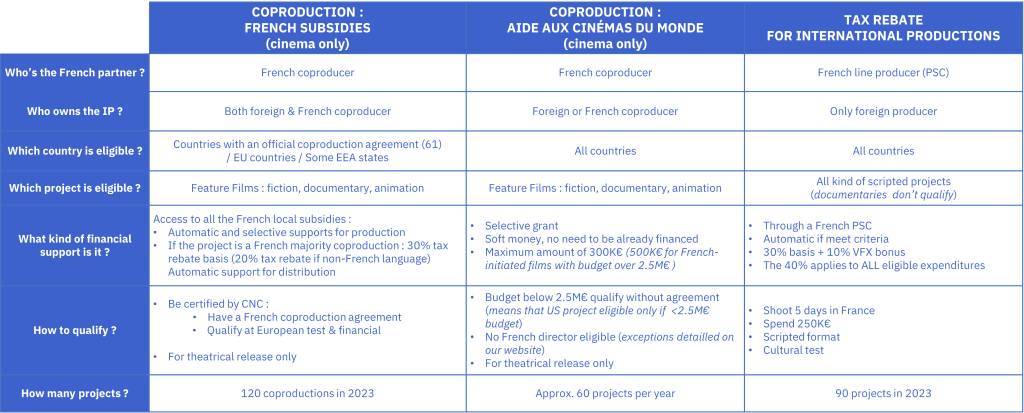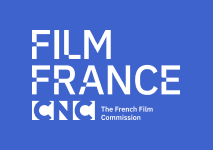France provides foreign producers with many co-production opportunities and soft money sources. In 2023, 120 French features were co-produced with foreign companies originated from 38 countries.
Three ways to produce in France

Why Choose a Co-production
- European co-productions can benefit from the country’s film financing system, notably the French selective schemes (see below), the automatic support for the French producer and distributor (which therefore pushes distributors to prefer French co-productions to 100% non-French films), and coin from French TV channels. Canal + and Free-to-air networks — TF1, France Televisions, ARTE and M6 — must invest a percentage of their annual revenues on French and European films.
- Most French regional funds are earmarked for 100% French projects or official coproductions (although there have been some examples of TRIPped projects that got support too).
- Sofica funds (private equity) can only invest into 100% French projects or official co-productions.
How to co-produce features
- If your production is based in EU or some EEA state: France is signatory of the European Convention on Cinematographic Co-production that enables co-production of feature films amongst members of the EU and some EEA states.
- If your project comes from one of the 61 countries which have co-production agreements or treaties with France, use the framework of each treaty (see below).
- If your project doesn’t not belong to any of these cases (Non-EU state without co-production agreement), the co-production will be an « unoffical » co-production, which means that it will not be considered as French, and therefore, will not get any of the supports mentioned hereafter.
Qualifying to the French system
The French co-producer will submit the project to the CNC. The CNC is responsible for assessing applications for qualification of a feature film (i.e. the French citizenship for the project).
For feature films:
- Two scales are used to determine whether it is European enough and whether it is French enough. Films must score enough points on both scales.
- When the co-production is made within the framework of a bilateral treaty, the citizens of the other country qualify as European.
Bilateral co-production agreements
Algeria, Argentina, Australia, Austria, Belgium, Bosnia-Herzegovina, Brazil, Bulgaria, Burkina Faso, Cambodia, Cameroon, Canada, Chile, China, Colombia, Croatia, Czech Republic, Denmark, Egypt, Estonia, Finland, Georgia, Germany, Greece, Guinea, Hungary, Iceland, India, Ireland, Israel, Italy, Ivory Coast, Kosovo, Lebanon, Lithuania, Luxembourg, Mexico, Morocco, Netherlands, New Zealand, North Macedonia, Palestinian territories, Poland, Portugal, Romania, Russia, Senegal, Serbia, Slovakia, Slovenia, South Africa, South Korea, Spain, Sweden, Switzerland, Tunisia, Turkey, Ukraine, United Kingdom, Uruguay, Venezuela.
The texts in French are available through Film France or on the Centre National du Cinéma et de l’Image Animée (CNC)’s website : https://www.cnc.fr/professionnels/reglementation/accords-internationaux
The key issue in the case of a project coproduced within the framework of an international agreement is that the citizens and technical facilities of the foreign partner allot points in the European scales.
Funding available to official feature film co-productions
1. The weight of TV funding
As it appears, a huge proportion of the money invested in movie production in France comes from TV channels. This is due to several regulations described below.
The free-to-air networks
First, the 3 free-to-air networks (TF1, France 2 & France 3, M6 & W9) have to invest a share of their revenue in pre-buys and co-productions of French-qualified movies, with at a part of it devoted to Frenchspeaking ones.
The French-German channel Arte does not have to obey by the same rules, but it nevertheless devotes more or less the same percentage of its turnover to movies. The law states that the networks have to choose the movies they will invest in before first day of principal photography.
Other TV channels that invest in film productions without having to comply to the obligations are: TMC, C8, France 4, France O, Gulli, HD1, NRJ12 & NT1. In 2016, the historical network invested in 7 French-qualified foreign movies co-produced by minority French producers.
The Pay TV channels
French law also fixes investment obligations for the pay-TV movie channels. They have to invest a share of their revenue in pre-buys of French-speaking movies and another share in European movies. In 2016, the French pay-TVs, Canal+, Ciné+ and OCS pre-bought 9 French-qualified foreign movies co-produced by (minority) French producers for a total of €6,1 M.
What they look for
Although they have to spend a lot of money, the channels are all free to choose what films they will buy. Consequently, domestic commercial French-language projects. intended to draw good ratings in primetime slots are very sought-after as early as the script stage, with prices going over €1 M per run on historical networks, and over €4M on the biggest pay-TV.
Both Free-to-air networks and pay-TV channels also invest in a few French-qualified foreign-speaking movies, generally by top European filmmakers. Their interest there is to use the money devoted to French productions for either Hollywood-like movies that can be aired in prime-time slots after wide releases (for example Taken, Non-Stop, Colombiana or Lucy) or for highlevel “auteur” films able to get the support of the press and the festivals, such as new films from Cristian Mungiu, Paolo Sorrentino, Ken Loach, Nanni Moretti, Michael Haneke or Alex de la Iglesia.
2. The automatic subsidies
The automatic subsidies, referred to in French as “Compte de Soutien” or “Soutien Automatique” are a key component of the French producing landscape: each qualified movie producer or distributor receives automatic subsidies in proportion to the film’s success at the French box office, and also in video stores (a percentage of DVD Bluray sales revenue) and in TV sales (a percentage of broadcasting rights sales).
The amount awarded for each ticket sold, or each Euro of DVD sales, varies according to its BSF figure, the “Frenchness factor“ of the movie (defined by its numbers of points in the French scale). This means that the more French elements it has, the higher its BSF figure will be, and the higher the automatic support will be given to its French co-producer. At the same time, the theatrical distributor of a French-qualified movie will also receive automatic support, again in proportion to the number of tickets sold. The money goes directly into the CNC account of the French producer (as well as the distributor), and they have to reinvest it in French-qualified movies; therefore, this money will be available for the producer’s next French-qualified movie. Thus, the value of the French rights of any foreign movie increases dramatically if it can be qualified as French, because each step of its exploitation will generate automatic support, available for subsequent films.
Therefore, the question arises: ’’How can a film project be more attractive to a French producer?” The answer is: “Obtain as many French elements as you can to get the film to qualify as French”, thus increasing the automatic subsidies it will generate for its co-producer and distributor in France: talents, crew members, locations, post facilities, VFX companies, etc.
How can you find “French elements”? Ask for help from Film France and its network of local film commissions all over France!
Case Study
Let’s consider a foreign-speaking Frenchqualified movie released in France that sells 100,000 tickets, so its box-office revenue around €611,000. Since the theaters usually keep 50 % of box office revenue in France, the distributor’s gross will be €305,500. It is a minority-French co-production, shot in a foreign language and let’s say that it scored 50 out 100 on the French scale this triggers automatic support (compte automatique de soutien).
Solely thanks to theater admissions, the film should generate around €40,000 for the French producer’s account at the CNC to invest on a future project. Then, for each DVD sold, legal downloads and official TV-run, the movie will also generate some extra revenue in that same producer’s account. The amount of money generated depends on the number of tickets/DVDs/downloads sold, and for TV, on how much the film broadcasting rights were sold.
The admissions will also generate some money on the distributor’s account depending also on the number of tickets sold. It can easily represent about half of the distributor’s box-office share! As the distributor has to recoup its P&A before being able to give some money to the rights owner, in some cases, producers don’t get any money back from the release, and the automatic support will stay as the only or the biggest return they get. The automatic support therefore has a huge impact in the risk-assessing equation of the producer. This way, foreign movies that can qualify as French become much more interesting to French producers and distributors. Many French distributors therefore act as coproducers of the foreign movies they are releasing to get them to qualify as French.
3. Soficas
Soficas are equity funds financed with tax-related money. They are allowed to invest in both films and TV productions, on a selective basis. Most only focus on feature films. Their money comes from banks that are allowed to collect, from private investors who want to pay less income tax. Sometimes, there is a guarantor (often media companies) who will repay the investors if needed. Soficas want their money back, so they tend to do mostly gap funding, providing producers with the last (and most expensive) money. Soficas generally stand behind the distributor(s) in the recoupment order. Only part of the Soficas money is invested in independent productions.
Each Sofica can invest 20% of its money in foreign-speaking (qualified) co-productions, as long as the film’s language matches the foreign co-producer’s country’s language. In 2016, the Soficas invested €31,7 M in 97 movies. 7 of them were majority foreign co-productions, mostly from British or Belgian producers.
4. Cash flow production
In order to encourage French credit houses to cash flow production contracts, France has created the IFCIC (www.ifcic.eu). This State-owned bank can counter-guarantee some loans on collateral and bridge loans to movie producers. It first targets loans against production contracts, but in some cases can also counter-guarantee contracts involving Foreign partners.
5. Selective subsidies
National subsidy: advance upon receipts
The “Avance sur Recettes” is a refundable grant awarded to around 55 projects every year chosen at the script stage for their cultural value by a committee of members of the creative community (producers, directors, distributors, writers, publishers, critics). But only Frenchspeaking (or France regional languages) projects are eligible, which narrows the field, outside France, to French speaking territories, such as Belgium, Switzerland, Québec…
Last year, the total budget for this selective mechanism was €23,45 M, and only 1 out of the 52 supported projects was a minority French co-production.
New technologies in production
New technologies in production is a selective fund to help mitigate risk-taking on the part of producers of movie or TV projects who work in 3D, or who use innovative digital technologies (digital visual effects, synthetic, imaging, development of specific processes). New technologies in production funding is accessible subject to certain conditions for all works, irrespective of genre (fiction, animation, documentary), format (development, production, TV projects, feature films) and ’dimension’ (whether or not 3D). Aid is granted in the form of a subsidy allocated to the French production company. 17 full-length feature film proposals were allocated New technologies in production funding in 2016, for an average amount of €185,000 for 3D films and €137,000 for non-3D films. In 2016, the New technologies in production fund budget stands at €6M.
Special support for co-productions with Germany or Italy
Germany’s Federal Film Fund, Filmförderungsanstalt (FFA) and its French counterpart the CNC have created a selective French-German fund, which gives refundable grants to co-productions between producers of the two countries. Each country contributes equally to the E3M fund. Selected projects are given grants on both sides, in proportion to each country’s input. 12 projects received aid in 2016.
Italy’s Ministero per i Beni e le Attività Culturali (MIBAC) and the CNC created a selective fund which gives non refundable grants to co-productions between producers of the two countries. Each country contributes equally to the €1M fund. Selected projects are given grants on both sides, in proportion to each country’s input, or only one side. 6 projects received aid in 2024.
NB: for co-production a small development fund exists for French-Italian film projects.
The local subsidies
Some local governments (Regions, Départements and Cities) have created funds to support movie production. Each one is defining its own support policy. The cultural value of the project is generally the biggest concern of the funds. Some of them develop partnerships with the bordering regions of nearby countries (Occitanie with Spain, Grand-Est with Germany).
Most of their investment goes to French speaking movies but some of them are open to non-French projects (Île-de-France, Provence-Alpes-Côte d’Azur, Guadeloupe).
For more information on these local support, please refer to:
- the guide published by Ciclic available on the website: www.ciclic.fr/panorama (in French only)
- OLFFI website: www.olffi.com
Aide aux cinéma du monde
Aide aux Cinemas du Monde (ACM) is a coproduction fund run by the CNC and Institut Français, open to projects from all over the world, without any exception that exist since 2012. It is aimed at supporting feature-length fiction, animation or documentary film projects intended for first showing in cinemas. It can be granted either at the pre-filming stage (funding for production) or for post-production (funding for finishing – only for projects having applied at the pre-filming stage and not supported then). The purpose is to encourage collaborations between foreign filmmakers worldwide and French professionals, in order to co-produce films that promote cultural diversity, and through this, France’s cultural reach and the revival of the country’s artistic creation. So far 666 projects of directors from 111 different nationalities have been supported (525 for production support; 141 for post-production support).
Application requirements and obligations
Application has to be completed by the France-based production and is given to a production company registered in France for a joint production with a production company registered abroad.
- Director is foreign (can be French if film is shot in a foreign language),
- Main language of the film is one of the languages of the territory where most of the film is shot or in the language of the director (but not French if the director is French),
- Part of the production and post-production costs are to be spent in France, at least 50 % of the amount of the support granted,
- Application needs to be submitted before filming starts
- There is no need to have any financing in place, ACM can be the first brick to a project. Films with a final cost of over €2,500,000 will need to obtain the French qualification (“agrément du CNC”) with a minimum of 20 points on the financial support scale for foreign-initiated films and 25 points for French-initiated films, implying that they have to be produced in compliance with a coproduction agreement between France and another country (or within the framework of the European convention for coproduction in case of a European multilateral coproduction between at least 3 European countries).
Colleges and procedures
Support is granted as a joined decision by the two entities (Institut Français and CNC) after consultation of the ACM committees. One committee is dedicated to first and second films, the second committee is dedicated to projects driven by more confirmed film directors, and the third committee is dedicated to post-production support.
Applicants have to register online via the CNC website. Applications must include, amongst other, the following documents: a copy of the script and director’s and producer’s notes in French, an estimate, the coproduction contract, financing plan, a proof of rights ownership.
The committee will assess the application and express an opinion based on the artistic qualities of the project , the potential for circulation, the financial feasibility of the project, the degree of involvement of the French producer and the quality of the directors’ previous works.
- If positive: assessment of the amount by the CNC and the Institut Français and signature of a contract between the production company and the CNC.
- If negative: possibility to apply a second time (if relevant modifications in the script) or ask for support again after production.
4 sessions a year: March, June, September and November
https://www.cnc.fr/web/en/funds/aide-aux-cinemas-du-monde_190870
Amounts
The amount allocated to each film will depend on the nature of each project, on average €130,000 given for fiction feature, €65,000 for documentary feature, and €40,000 for post-production support. Around 40 projects receive support every year.

